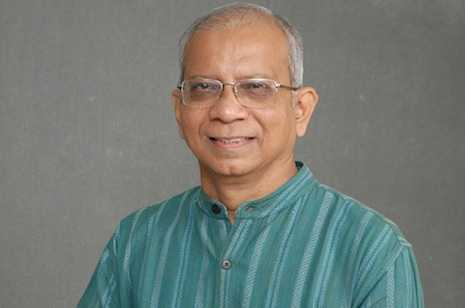
In a landmark decision on May 6, the Supreme Court of India declined to overturn a Gujarat High Court judgment upholding the constitutional validity of the central government’s scholarship scheme for deserving students of minority religions in Gujarat.
The central government launched this scholarship scheme in 2008 for five minority communities (Muslim, Sikh, Christian, Buddhist and Parsi) through which it funded 75 percent of the allotted amount, with the balance expected to be borne by the state government. This scheme is meant for children whose parents do not have annual incomes above 100,000 rupees, and each of the student beneficiaries was expected to get about 850 rupees a year for their studies.
The Gujarat government, however, refused to implement this scheme in the state. A Public Interest Litigation case was filed in the Gujarat High Court in 2011, and in February the Gujarat High Court in a majority decision rejected the contention of the Narendra Modi government that the scheme was discriminatory in nature. It also directed the government to implement it. Unhappy with this verdict, Modi’s government then appealed to the Supreme Court, which also turned it down.
In an official notification in some Gujarati papers on May 21, the Gujarat government finally announced the implementation of the scheme, which is expected to benefit at least 200,000 students – most of them Muslims – and perhaps a few Christians.
That the Gujarat government has acted only after the intervention and direction of the Supreme Court speaks volumes about their attitude towards the minorities of the state.
For almost five years, poor children from minority communities have been denied what is rightfully theirs. By choosing not to grant these scholarships, the Modi government has clearly shown that they can easily throw constitutional propriety to the winds and exclude minorities (particularly the poor) from benefiting from schemes that are meant to help their growth and development.
Ever since Modi came to power in the state, the minorities of Gujarat have neither felt safe nor secure. The Gujarat carnage of 2002 is a case in point of how the Muslims in the state were not only brutalized and killed but also pushed to the margins and ghettoized.
The Freedom of Religion Law, which Modi promulgated in 2003 (in keeping with his election promise of 2002), is clearly aimed at preventing people from embracing a religion of their choice.
The deaths over the years have emphatically demonstrated that the state will not hesitate to conveniently (and without reason) kill youth from a minority community, thus demonizing the entire community and simultaneously succeeding in garnering the “goodwill” of a section of the majority community.
Even today the police in Gujarat constantly visit Catholic churches demanding that they be allowed to inspect the Baptism registers on some pretext or other. Modi invites investments projecting Gujarat as a progressive and "vibrant" state. But Modi’s “vibrant” Gujarat obviously has no place for the minorities of the state.
Now with Modi nursing prime ministerial ambitions, his campaign managers are in overdrive, ensuring that he undertakes some “cosmetic exercises” in an attempt to show that he is “inclusive”. Some Muslims and Christians have easily fallen into his manipulative trap providing the necessary photo-ops that show Modi talking or shaking hands with them. These pictures are then splashed all over with the hope that they become a “visa” for the big prize.
The bitter truth, however, is that Modi will never be able to treat minorities as equals. It was telling indeed that on Easter Sunday (March 31) this year, Praveen Togadia and his ilk of the Vishwa Hindu Parishad (VHP, or world Hindu council), proudly proclaimed that by 2015, Gujarat would be declared a “Hindu state.” The significant aspect of this proclamation was that it was made at a mass rally in Modi’s constituency of Maninagar. That Modi has no guts to challenge this statement and put Togadia behind bars, is a clear indication of his affiliation to VHP and other Hindu groups that work to make India a Hindu nation.
In view of the above, the secular citizens of the country have a task chalked out for them – to come out in large numbers to oppose Modi’s ideology of bigotry and divisiveness in order to preserve and promote India’s deep-rooted and long tradition of inclusiveness and pluralism.
The minorities of India and the secular ethos of the country would be in grave danger if Modi ever assumes the highest office.
Fortunately, the people of India know better.
Father Cedric Prakash is a Jesuit priest and Director of PRASHANT (tranquility), a centre for Human Rights, Justice and Peace based in Ahmedabad in Gujarat state


